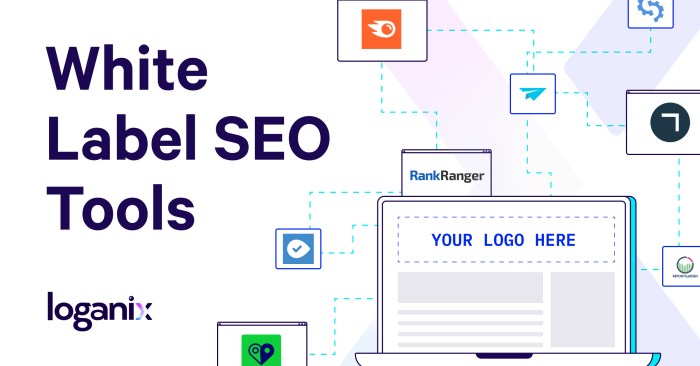Best White-Label Marketing Services for Agencies sets the stage for this enthralling narrative, offering readers a glimpse into a story that is rich in detail and brimming with originality. As we explore the world of white-label services tailored for agencies, we uncover a realm of possibilities and strategies that can elevate businesses to new heights.
Understanding White-Label Marketing Services
White-label marketing services refer to outsourced services that agencies can rebrand and sell to their clients as their own. This allows agencies to offer comprehensive solutions without having to invest in an in-house team or expertise.Agencies benefit from using white-label services in several ways:
Cost-Effective Solution
- By outsourcing services, agencies save on hiring and training costs associated with building an in-house team.
- They can also scale their services as needed without the overhead costs of maintaining a full-time team.
Expertise and Resources
- White-label providers have a team of experts with specialized knowledge and experience in strategies and trends.
- Agencies can leverage these resources to offer high-quality services to their clients without having to develop the expertise themselves.
Time-Saving
- By outsourcing tasks, agencies can focus on their core services and client relationships without getting bogged down in the details of implementation.
- This allows them to deliver results to their clients more efficiently and effectively.
Tasks typically included in white-label services:
- research and analysis
- On-page optimization, including meta tags, headers, and content optimization
- Off-page optimization, such as link building and local strategies
- Performance tracking and reporting
- audits and recommendations for improvement
Choosing the Best White-Label Provider
When it comes to selecting a white-label provider for your agency, there are several key factors to consider. From pricing models to scalability, making the right choice is crucial for the success of your services.
Factors to Consider When Selecting a White-Label Provider
- Reputation and Experience: Look for a provider with a proven track record of success and expertise in the field.
- Quality of Services: Ensure that the provider offers high-quality services that align with your agency's standards.
- Communication and Support: Choose a provider that offers excellent communication and support to address any issues or concerns promptly.
- Customization Options: Opt for a provider that allows you to customize services according to your clients' specific needs.
Comparing Pricing Models Offered by Different White-Label Services
- Flat Fee: Some providers offer a flat fee for their white-label services, making it easier to budget and plan for expenses.
- Performance-Based Pricing: Other providers may offer performance-based pricing, where you only pay based on the results achieved.
- Package Deals: Some providers offer package deals with bundled services at a discounted rate, which can be cost-effective for agencies.
The Importance of Scalability When Choosing a White-Label Provider
Scalability is crucial when selecting a white-label provider as your agency grows. Ensure that the provider can accommodate your increasing workload and client base without compromising the quality of service. This flexibility will allow your agency to expand its offerings and meet the evolving needs of your clients effectively.
Evaluating the Quality of White-Label Services

When it comes to selecting a white-label provider for your agency, it is crucial to evaluate the quality of the services they offer. This assessment will help you ensure that you are partnering with a reliable and effective provider that can deliver the results your clients need.
Key Performance Indicators (KPIs) for White-Label
- Organic Traffic Growth: Monitor the increase in organic traffic to your clients' websites over time. A significant rise indicates the effectiveness of the strategies implemented.
- Rankings: Track the improvement in rankings for targeted search terms. Higher rankings lead to increased visibility and traffic.
- Conversion Rates: Measure the conversion rates on your clients' websites to determine if the efforts are attracting the right audience and driving leads or sales.
- Backlink Quality: Assess the quality of backlinks generated by the provider. High-quality backlinks from authoritative sites can boost a site's credibility and visibility.
Importance of Transparent Reporting
Transparent reporting is essential in white-label services as it allows you to keep track of the progress and performance of the campaigns. It enables you to understand the strategies being implemented, the results achieved, and any areas that may need improvement.
Clear and detailed reports help you communicate effectively with your clients and build trust by demonstrating the value of the services provided.
Implementing White-Label Strategies for Agencies
Integrating white-label strategies into agency services can greatly enhance their digital marketing offerings and provide value to clients. Here is a step-by-step guide on how agencies can successfully implement white-label strategies:
The Role of Content Marketing in White-Label Campaigns
Content marketing plays a crucial role in white-label campaigns as it helps in improving search engine rankings, driving organic traffic, and engaging the target audience. Here are some best practices for leveraging content marketing in white-label strategies:
- Create high-quality, relevant, and engaging content that resonates with the target audience.
- Optimize content with relevant s, meta tags, and internal links to improve search visibility.
- Promote content across various channels such as social media, email marketing, and guest posting to reach a wider audience.
- Regularly update and refresh content to ensure its relevance and maintain search engine rankings.
Tracking and Analyzing the Performance of White-Label Strategies
Tracking and analyzing the performance of white-label strategies is essential to measure the effectiveness of the campaigns and make data-driven decisions for improvement. Here are some best practices for tracking and analyzing the performance of white-label strategies:
- Use tools like Google Analytics, SEMrush, or Moz to track key metrics such as organic traffic, rankings, and conversion rates.
- Set up custom dashboards and reports to monitor the performance of campaigns and identify areas for optimization.
- Regularly conduct audits to identify technical issues, content gaps, and opportunities for improvement.
- Collaborate with clients to set clear goals and KPIs for white-label campaigns and provide regular performance updates and insights.
Final Conclusion

In conclusion, Best White-Label Marketing Services for Agencies opens doors to a realm of enhanced digital marketing opportunities for agencies looking to expand their reach and maximize their online presence. By embracing the power of white-label services, businesses can unlock a competitive edge and propel their growth in the ever-evolving digital landscape.
Question & Answer Hub
What are white-label marketing services?
White-label marketing services are outsourced services provided by a specialized agency that agencies can rebrand and sell as their own to clients.
How do agencies benefit from using white-label services?
Agencies benefit from white-label services by expanding their service offerings, increasing revenue streams, and enhancing client satisfaction through expert solutions.
What factors should agencies consider when selecting a white-label provider?
Agencies should consider factors like the provider's reputation, service quality, pricing models, scalability, and transparency in reporting when choosing a white-label provider.
What is the role of content marketing in white-label campaigns?
Content marketing plays a crucial role in white-label campaigns by creating valuable, engaging content that attracts and retains target audiences while boosting performance.
How can agencies track and analyze the performance of white-label strategies?
Agencies can track and analyze the performance of white-label strategies through monitoring key performance indicators (KPIs), conducting regular audits, and utilizing analytics tools to measure results and optimize strategies.
















